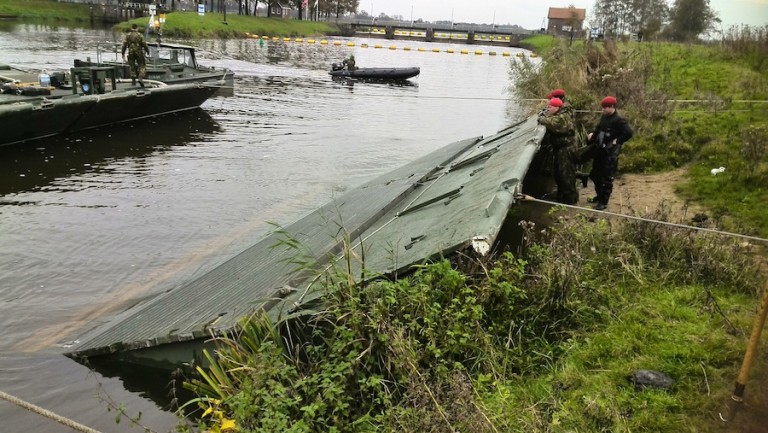Webinar: The BreachDefender as Emergency Response Strategy
- 16 November 2020
- Online meetings
Are you working in the field of water management or emergency response? Sign in for our webinar and interact with fellow experts about using the BreachDefender as an Emergency Response Strategy.
Your host
Danny Janssen, is a PhD candidate at Dutch Defense Academy and Technical University Delft. His research subject is The BreachDefender as emergency response strategy to prevent or postpone a dike breach. Danny will present the results of his work and ideas for the future. This will be followed by an interactive discussion.

Webinar details
Date: Monday 16th of November
Time: 13.00-14.30 hrs, CET
Hosted by Danny Janssen via Zoom
Sign in by e-mail, no later than Monday the 16th of November 9.30, CET
The BreachDefender
The BreachDefender is an emergency response strategy which can be applied to prevent or postpone a dike breach in the early stages of the breach formation process. The emergency response strategy uses military equipment in another way then it was originally designed for. Currently, the BreachDefender is a floating pontoon, normally used to construct temporarily bridges.
BreachDefender used in two scenarios
The effect of the emergency measure in two different scenarios is subject to research. In the first scenario settlements locally caused a reduction of the crest height of a dike. The BreachDefender is applied to restore the original crest height, reducing the overflowing discharge. In the second scenario damage to the protective grass layer is discovered, which increases the permeability of the dike. The BreachDefender is inbound to reduce the total discharge flowing into the dike.

Topics for discussion
Current research mainly focusses on the physical conditions required for successful application of the emergency measure. Other important aspects of successful application of an emergency measure are decision making and logistics. Main interest for discussion is to gain insight in these processes, which results in the following questions:
Technical aspects
- In which circumstance do you think use of a BreachDefender is useful?
- What do you think of both scenarios, are these realistic situations?
Emergency Response process
- What are typical time scales involved in the decision-making process, after detection of a weak spot?
- Who are involved in this process?
- When does the local water authority involve the military in the process?
- What are the main bottlenecks in the entire decision tree?
Sign in for the webinar
Are you interested to learn more about the research and topics for discussion? Sign in for the webinar by e-mail as soon as possible, no later than Monday the 16th of November 9.30, CET. After registration, you will receive the link to the webinar by e-mail.
